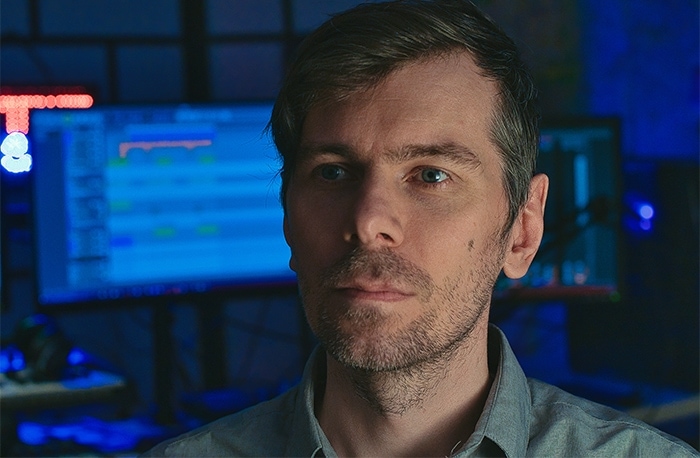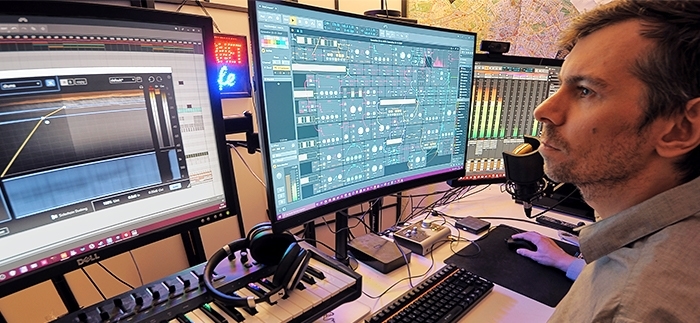Starting a new piece of music almost every day – what sounds like a highly efficient assembly line, is the first step in the workflow of the German music producer Polarity. Please note the choice of words though: to start. True to his motto “Distance yourself from your work to get an objective view on it”, Polarity a.k.a. Robert Agthe allows his creations to “ripen”. When he gets back to them after days, weeks or even months, he knows exactly what to do with them.
Note: We replaced smart:comp with smart:comp 2! The spectro-dynamic compressor now sports sound-shaping option, an entire range of new profiles (single tracks, buses, mixes), a free-form transfer function with compression templates, states, mid/side processing, … and much more.
Polarity sees his way of becoming a music producer as a gradual process that included a few experiments. “I had a phase being a DJ around the turn of the millennium but I realized quite quickly that it restricts me and that I am not really happy doing it.” His priorities are clearly directed towards producing.
Drum and Bass is Polarity’s home base but he is interested in different genres, like Ambient, too. “At the end of the day I can generally describe my music like I would describe myself: Always looking ahead but with one foot planted in the past – and the never ending war between letting go and welcoming the new.”
In his career as a producer Polarity can record a few releases with breakbeat labels. For him though, his biggest success is the set-up of community called “producer-network” in the beginning of 2000. “That was before Facebook and Soundcloud even existed. Producers could register, upload their music, give feedback etc. – later it became a net label.”

Even though Polarity follows the “ripening approach” in the beginning, he tries to make quick and the best possible decision in every further step of his workflow. He explains: “I think that too many variables and pending things are not good for a production. If you return to sounds, tracks or effects again and again to change them, you often won’t be able to finish and that is something you can hear in the result.” Due to digitalization and its huge supply of tools, it’s very tempting to do exactly that: Going back to a creation over and over again to revise it. Polarity says: “A problem that only exists since computers with powerful processors are available.”

Tackling the challenge of mixing multiple songs and establish consistency regarding loudness, tonal balance and punch is something Polarity is very familiar with. “I rely on automated tools and the loudness units respectively LUFS. I know my values for drums, bass, lead and so on. I use the LU auto gain plug-in by Hornet for a neutral gain staging, sonible’s smart:EQ live for tonal balance and I trust the parameter settings of smart:comp. I also often use the auto threshold of Ozone’s maximizer. Mixing and mastering contains a lot of boring, automatable work. These tools achieve good, neutral results with just a few clicks. That gives me time to focus on my creative priorities in the mix.”
That’s why Polarity uses smart:comp on almost every bus – drums, bass and even on the master. He straightens out crooked sounds with smart:EQ live because he likes that the tool constantly analyzes and corrects while he exchanges and edits. “In the drum and bass genre heavily modulated bass is common. Quite often you tend to drift off in sound design and your ears don’t know what neutral frequency balance is anymore. smart:EQ live grounds you quickly when that happens. Often, I trust those tools more than my own ears. They always have the final say but can only assess correctly when they’re fresh and unstressed. This is the reason why I appreciate smart:comp and smart:EQ live: They support me in my creative phase by giving me assurance that I don’t move too far from center.”